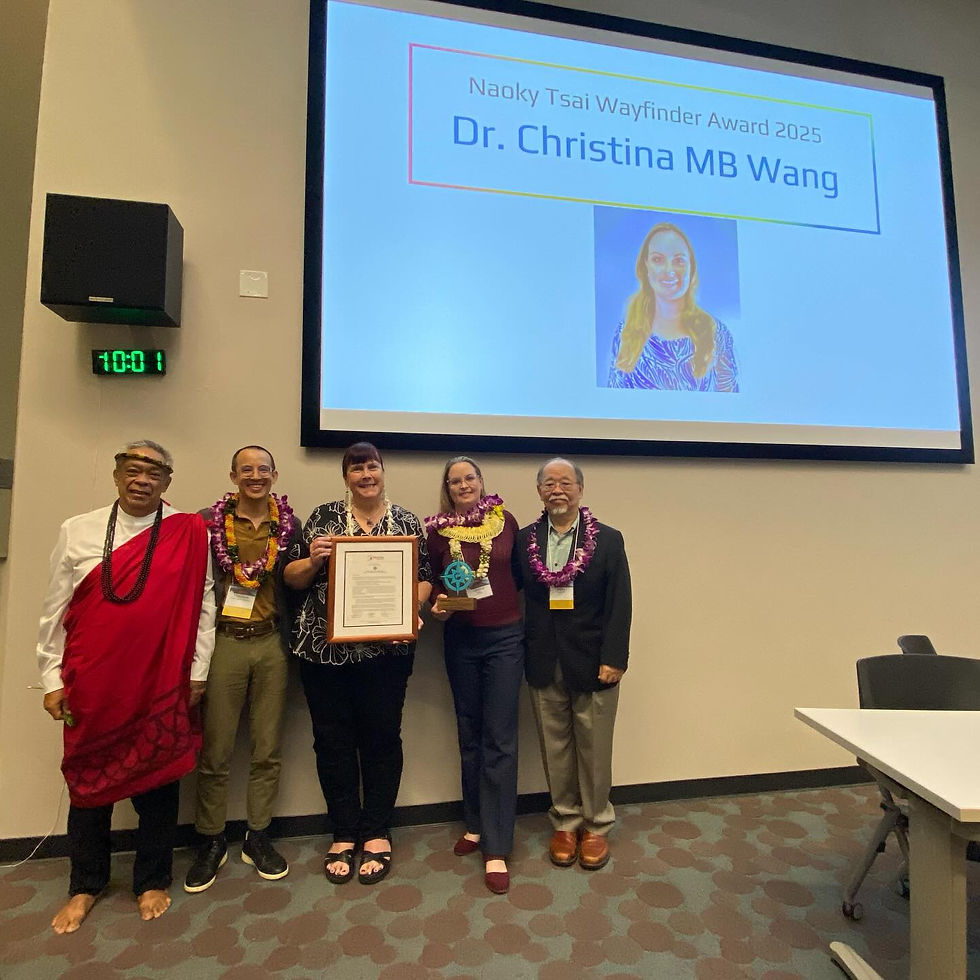Celebrating National Recovery Month
- HHHRC
- Sep 27, 2022
- 2 min read

The purpose of National Recovery Month is to “promote and support new evidence-based treatment and recovery practices, the nation’s strong and proud recovery community, and the dedication of service providers and communities who make recovery in all its forms possible.”
HHHRC joins all those who are celebrating their recovery from problematic use of alcohol and other drugs this month and throughout the year.
Many HHHRC staff are in recovery. Among them is Tobacco Treatment Specialist Donita Garcia, who is entering her twelfth year of recovery. Donita recently spoke about her lived experience as a person in recovery at the Overdose Awareness Day at the capitol.
Donita shared that she had three documented drug overdoses and detailed her long struggles with addiction. She was a victim of sexual abuse from the age of 5. “I had to escape reality somehow, and it was the only way I knew how,” she offered.
She attributed the beginning of her recovery to a kind social worker who referred her to drug treatment. After one year of sobriety, she started college at the age of 56 and subsequently obtained three degrees.
“All I ask, and I ask this with sincerity, don’t look down on people. Help them. Given them a chance at life. Show them you care. If it wasn’t for that social worker who helped me, I might not be here,” she said.
Her statement is available on HHHRC’s Facebook page. (See the video entry on August 31, with Donita’s story beginning at the 31-minute mark.)
“Recovery can be done one day at a time. Give 100% to it and miracles can happen,” she recently wrote.
President Biden issued a proclamation in support of National Recovery Month and those working in behavioral health: “This National Recovery Month, we thank peer recovery support professionals, counselors, addiction specialists, first responders, scientists, family members, and everyone who works tirelessly to help our fellow Americans recover from substance use disorder.” He also noted, “Black and Brown Americans are also often subject to harsher penalties for addiction-related charges.”
The criminalization of substance use perpetuates lasting stigma that negatively impacts a person’s ability to obtain housing, employment, and government benefits over the course of their life. Native Hawaiians face more punitive treatment for drug-related offenses than other island residents, including longer terms of incarceration and longer periods of criminal legal supervision. Under current state law, possession of any amount of non-cannabis drugs is Class C Felony punishable by a five-year prison term.
The American Public Health Association (APHA) has called for the decriminalization of drug possession for personal use. It calls for a reorientation of policies to “embrace health-centered, evidence-based approaches that reduce the individual and community harms deriving from current policies and from illicit drug misuse, respect the human rights of people who use drugs, and allow for the redirection of financial resources toward where they are needed most.”
Toward those ends, APHA’s recommends “redirecting resources from criminal justice programs [such as drug courts] toward public health interventions.”










Comments